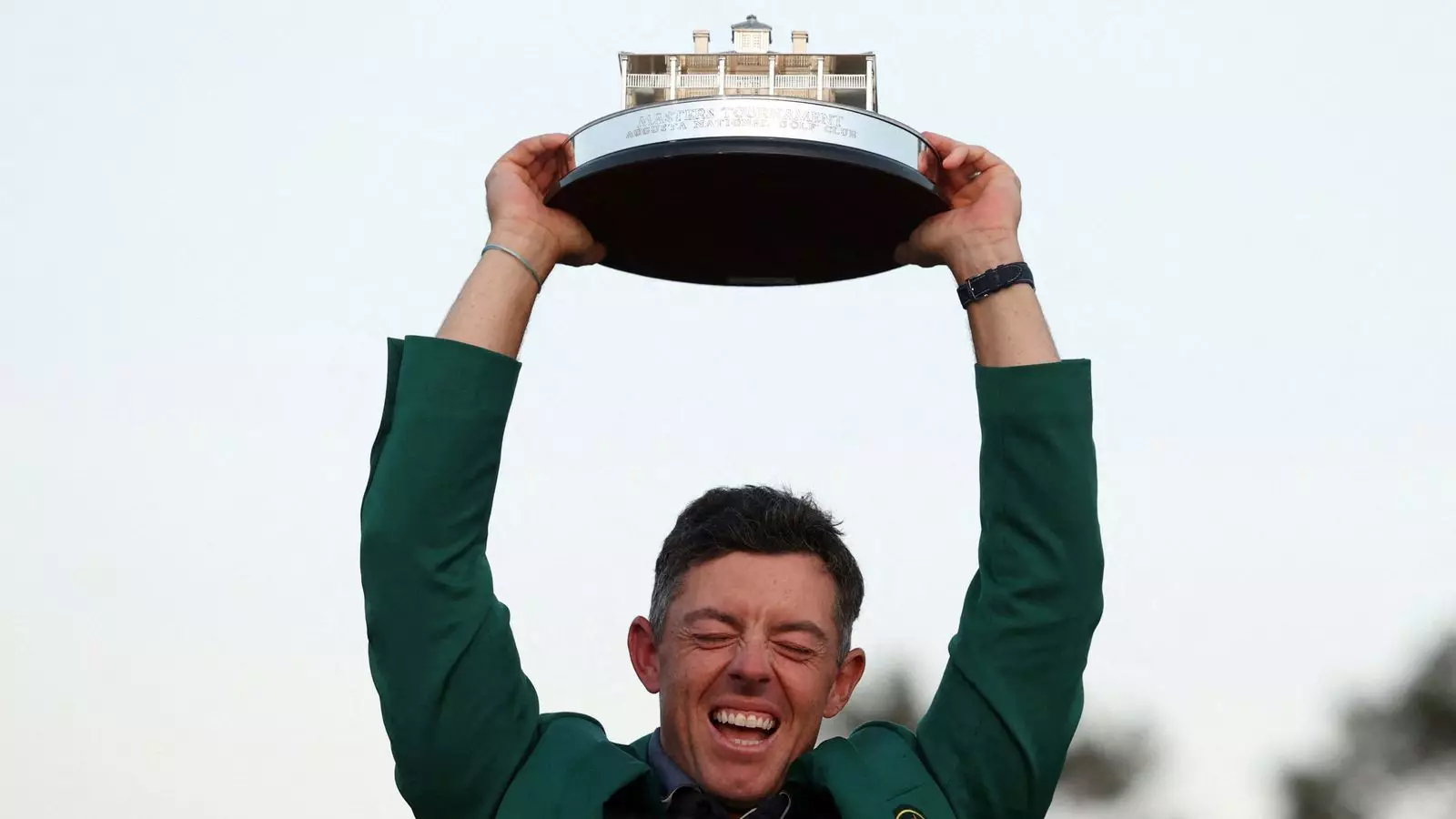Rory McIlroy’s journey to the pinnacle of professional golf is nothing short of extraordinary, steeped in the passion and dedication of his family. Captured on a simple home video, we see a three-year-old McIlroy discovering the intricacies of his swing, a microcosm of his immense talent and potential. His father, Gerry, recognized early on that Rory was destined for greatness, taking him to golf courses in a stroller, sowing the seeds of an unparalleled career in a sport that demands extraordinary skill and mental fortitude.
The sacrifices made by his parents — both taking extra jobs to finance Rory’s burgeoning career — highlight the family’s unwavering commitment to his success. Such sacrifices are not uncommon in the sports realm, but they speak volumes of the belief that drove them to support Rory. It is a potent reminder that behind every successful athlete lies an untold story of familial love, pressure, and expectation.
The Pinnacle: Success and Its Burdens
McIlroy’s early achievements were monumental, culminating in the grand slam of four major championships won by the age of 25 — a feat matched only by the legendary Tiger Woods in his generation. By 22, he had ascended to the top of the world rankings, capturing the imagination of fans and critics alike. His talent was palpable, and the accolades flowed. The world watched with bated breath as McIlroy appeared to follow in the footsteps of golfing giants.
However, as meteoric as his rise was, it was not without its pitfalls. Following his initial triumphs, a protracted drought of 11 years ensued, where success seemed achingly elusive. This phase was not just a career slump but a psychological battle against the insurmountable gravity of expectations that fans and media had heaped upon him. The narrative took a darker turn, with many questioning whether McIlroy could reclaim his former glory. The immense psychological burden of expectation transformed from a motivating force into a crippling weight.
Resilience in the Face of Adversity
Against this backdrop of uncertainty, McIlroy’s resilience is commendable. Each tournament brought renewed hope, yet also the pain of falling short. He embodied both the thrill of potential and the agony of unfulfilled promise, becoming a case study in the complexities of mental health among athletes. In a world that demands relentless success, his struggles reflect an all too familiar angst faced by many in competitive sports.
And yet, do we dare to hope? The whispers grew louder that his time would come again, that the elusive green jacket would finally grace the boy from Holywood, casting aside a narrative brewed in self-doubt. Indeed, for the people of Northern Ireland, Rory McIlroy is more than a mere athlete; he is a beacon of hope in a society longing for its own success stories.
With unwavering support from his community and a newfound personal resolve, the spirit of a champion flickers brightly within him once more. As fans and critics alike hold their breath, it is clear that McIlroy’s journey is not yet complete — it is evolving, and his legacy is not defined solely by the trophies won, but by the trials that have shaped him into the golfer he is today.

